At the recent TCB Council Workshop in Baltimore, TCBs – including MET Labs – were given a refresher on the fundamentals of modular approvals. Here is a summary.
In the U.S., wireless module approvals fall into one of three categories:
- Full modular approval – A radio module to be approved for use in any host and sold to anyone
- Limited modular approval – A radio module to be approved for restricted use
- Split modular approval – A radio module where the transmitter firmware is held on a host
FCC Full Modular Approval
Full approval is defined in FCC Part 15.212. The module will have the FCC ID; any host incorporating the module will show that the module is contained within it: Contains FCC ID: XXXYYYYY.
There are 8 criteria for full approval:
- Transmitter must have its own shield
- Must have buffered modulation/data inputs
- Must have power supply regulation
- Must meet Part 15 antenna requirements
- Must be tested in stand-alone configuration
- Must be labelled with the FCC ID
- Must meet its own FCC rule part
- Must meet RF exposure requirements
The module host must still comply with its own requirements (e.g. Part 15B, Verification or DoC).
FCC Limited Modular Approval
FCC limited approval is for modules that don’t meet all eight criteria for full approval. Limited approval is possible when the host or end environment is known:
- The module will be certified for a range or series of devices, similar in construction
- The module will be certified for use by the grantee or an authorized OEM
- The module will be tested in a representative host
FCC Split Modular Approval
Split approval can only be certified by the FCC, and is included on the TCB Exclusion List.
For module approvals, Knowledge Database (KDB) 996369 is key. Other important KDBs include:
- KDB 784748 contains labelling requirements
- KDB 447498 contains RF exposure, MPE and SAR test guidance
- KDB 616217 contains SAR host guidance
Canada IC
Canada IC modular approvals are to RSS-GEN section 3.2, with requirements and labelling similar to FCC. Unlike FCC, unlicensed modules use the same eight criteria as licensed modules.
For limited modular approval, guidance comes from RSS-GEN section 3.2.3, and is also similar to FCC.
MET is an FCC TCB and an Industry Canada CB.
Europe R&TTE Directive
In the EU, there is no certification or modular approval, but rather Declaration of Conformity (DoC).
A module placed on the market should be fully assessed to the R&TTE Directive (Radio, EMC and Safety), either as an independent radio or as a radio component intended for use within a host.
There are not eight criteria, so the manufacturer must assess to all possible installation environments. By CE Marking a module, you are stating that it will comply in its intended use and environment.
For integrating modules into a host, the host company is ultimately responsible for compliance, unlike with the FCC and IC. However, previous testing may be taken into consideration by the module integrator. If module testing is trusted for the DoC of host, the module’s Technical Construction File (TCF) becomes part of the host’s TCF.
For the R&TTE Directive, these guidance documents exist:
- ETSI TR 102 070-1 – Application of EMC standards
- ETSI TR 102 070-2 – Application of Radio standards
- R&TTECA, TGN 01 – Requirements for a Final Product that Integrates an R&TTE Directive Assessed Module
Read about the proposed changes to the R&TTE Directive.
Japan
“Modular approvals” do not appear in Japanese radio law. However, in July 2012, MIC announced that a module could be certified as a radio device, even if it used soldered connections, if it was the type: WLAN, Bluetooth, Zigbee, etc. In other words, a FCC 15.247 type of device. It is not modular approval, but it does allow soldered modules to be certified as radios.
In February 2013, MIC announced that modular approvals will be integrated into Japanese radio law. Requirements are being developed now. Currently, there is no timeline or estimated implementation date.
For questions or for a modular approval quote, visit our Quote Center.
We will be at CTIA Wireless next month. Request to meet with us.
